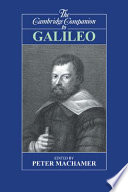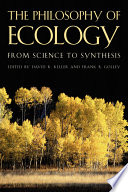 | Peter Machamer - Biography & Autobiography - 1998 - 474 pages
...is augmented by six corollaries outlining the composition of forces. His laws are: Law I. Every body perseveres in its state of rest, or of uniform motion in a right line, unless it is compelled to change that state by forces impress'd thereon. Law II. The alteration... | |
 | Kevin R. Coombes, Ronald Lipsman, Jonathan Rosenberg - Mathematics - 1998 - 314 pages
...translated by A. Motte, republished in the Great Minds Series, Prometheus Books, 1995, p. 19}: Every body perseveres in its state of rest, or of uniform motion in a right line, unless it is compelled to change that state by forces impressed thereon. The alteration of motion... | |
 | David Rabe - Fiction - 2000 - 518 pages
...perspective that the law we have been discussing is known to exist." "And the law is that 'Every body perseveres in its state of rest or of uniform motion in a right line unless it is compelled to change by forces — ' Wait a minute! Wait!" "What?" "Compelled?" "Is... | |
 | David R. Keller, Frank B. Golley - Science - 2000 - 386 pages
...abstraction and idealization that he had undertaken, and he says in the De Motu Corporum: "Every body perseveres in its state of rest, or of uniform motion in a right line, unless is it compelled to change that state by forces impressed thereon." Yet Newton points out... | |
 | Criticism - 2000 - 586 pages
[ Sorry, this page's content is restricted ] | |
 | David Rabe - Fiction - 2000 - 518 pages
...perspective that the law we have been discussing is known to exist." "And the law is that 'Every body perseveres in its state of rest or of uniform motion in a right line unless it is compelled to change by forces — ' Wait a minute! Wait!" "What?" "Compelled?" "Yes."... | |
 | David R. Keller, Frank B. Golley - Science - 2000 - 390 pages
...abstraction and idealization that he had undertaken, and he says in the De Motu Corporum: "Every body perseveres in its state of rest, or of uniform motion in a right line, unless is it compelled to change that state by forces impressed thereon." Yet Newton points out... | |
 | Paul J. Achtemeier, Joel B. Green, Marianne Meye Thompson - Religion - 2001 - 644 pages
...Isaac Newton's (d. 1727) laws of motion, also known as Newtonian mechanics: • First Law: "every body perseveres in its state of rest, or of uniform motion in a right [ie, straight] line, unless it is compelled to change that state ..." — that is, mass possesses inertia,... | |
 | I. Bernard Cohen, George E. Smith - Biography & Autobiography - 2002 - 518 pages
...without some other thing which impedes it." 19 Newton, Principia, 3rd edn, vol. i, p. 19. "Every body perseveres in its state of rest, or of uniform motion in a right line, unless it is compelled to change that state by forces impressed thereon." It is interesting to... | |
| |